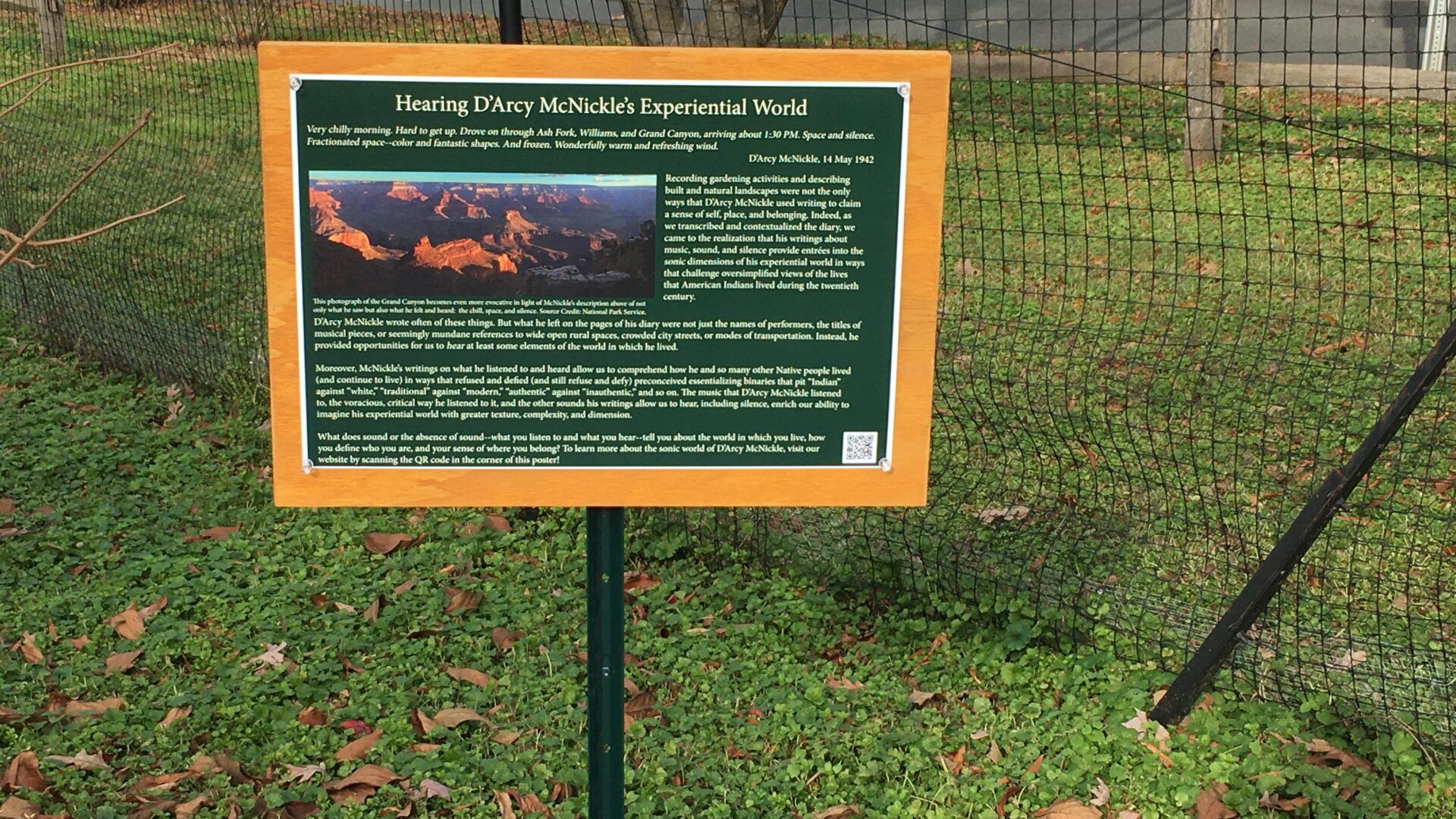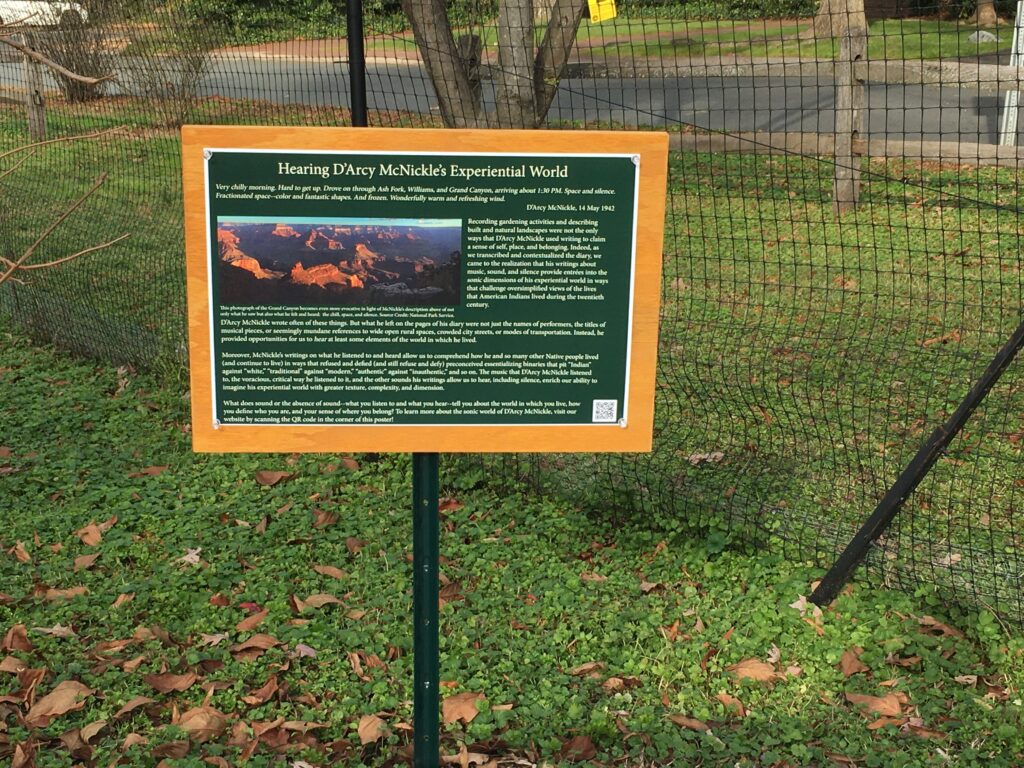Hearing D’Arcy McNickle’s Experiential World
Very chilly morning. Hard to get up. Drove on through Ash Fork, Williams, and Grand Canyon, arriving about 1:30 PM. Space and silence. Fractionated space–color and fantastic shapes. And frozen. Wonderfully warm and refreshing wind.
D’Arcy McNickle, 14 May 1942
Recording gardening activities and describing built and natural landscapes were not the only ways that D’Arcy McNickle used writing to claim a sense of self, place, and belonging. Indeed, as we transcribed and contextualized the diary, we came to the realization that his writings about music, sound, and silence provide entrées into the sonic dimensions of his experiential world in ways that challenge oversimplified views of the lives that American Indians lived during the twentieth century.
D’Arcy McNickle wrote often of these things. But what he left on the pages of his diary were not just the names of performers, the titles of musical pieces, or seemingly mundane references to wide open rural spaces, crowded city streets, or modes of transportation. Instead, he provided opportunities for us to hear at least some elements of the world in which he lived.
Moreover, McNickle’s writings on what he listened to and heard allow us to comprehend how he and so many other Native people lived (and continue to live) in ways that refused and defied (and still refuse and defy) preconceived essentializing binaries that pit “Indian” against “white,” “traditional” against “modern,” “authentic” against “inauthentic,” and so on. The music that D’Arcy McNickle listened to, the voracious, critical way he listened to it, and the other sounds his writings allow us to hear, including silence, enrich our ability to imagine his experiential world with greater texture, complexity, and dimension.
What does sound or the absence of sound–what you listen to and what you hear–tell you about the world in which you live, how you define who you are, and your sense of where you belong?
Contributors: Georgia Bronson, Kasey Linton, Rider O’Neill, and Noah Tessau
Original Text: Grace Yannotta and Professor Dan Cobb

